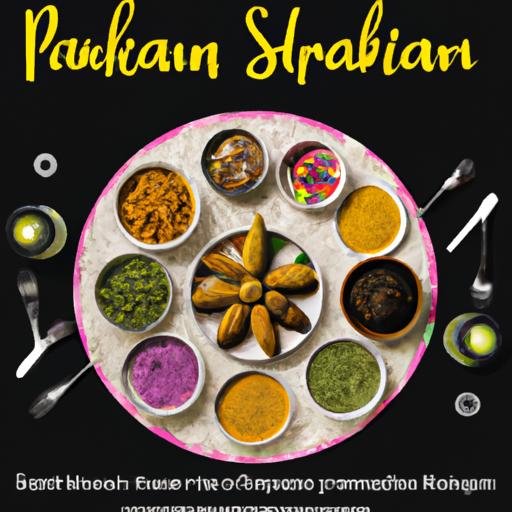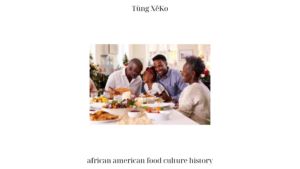Introduction
Pakistan, a land known for its vibrant culture and warm hospitality, is equally celebrated for its diverse and flavorsome cuisine. The food culture in Pakistan is a true reflection of the country’s rich history, cultural influences, and regional variations. From aromatic biryanis to spicy curries, Pakistani cuisine offers a delightful culinary adventure for food enthusiasts. Let’s embark on a journey to explore the intricacies and cultural significance of Pakistani food.
Traditional Pakistani Cuisine
Pakistani cuisine boasts a fascinating blend of flavors, spices, and cooking techniques that have evolved over centuries. Influenced by various civilizations, including the Mughals, Persians, and Afghans, traditional Pakistani dishes have gained widespread popularity. From the succulent kebabs of Peshawar to the delectable biryanis of Hyderabad, each region offers its unique culinary delights.
Rich History and Influences on Pakistani Food
The roots of Pakistani cuisine can be traced back to the ancient Indus Valley Civilization, where the use of spices and herbs in cooking was prevalent. Subsequently, the arrival of the Mughals introduced rich flavors and elaborate cooking styles, resulting in a fusion of Persian and Indian influences. The use of aromatic spices like cardamom, cumin, and saffron became an integral part of Pakistani cuisine.
Popular Dishes and Ingredients
Pakistani cuisine is renowned for its mouthwatering dishes that cater to a variety of tastes. From the fiery karahi to the creamy butter chicken, the flavor palette is diverse and vibrant. Some must-try dishes include the aromatic biryani, succulent seekh kebabs, and the indulgent niharThe use of staple ingredients such as rice, wheat, lentils, and a plethora of spices adds depth and complexity to the flavors.
Regional Variations in Pakistani Cuisine
One of the fascinating aspects of Pakistani food culture is the regional diversity in culinary traditions. Each province has its distinct flavors and specialties. The spicy cuisine of Punjab, the flavorful seafood of Sindh, the hearty meat dishes of Balochistan, and the aromatic biryanis of Karachi all contribute to the tapestry of Pakistani cuisine. Exploring these regional delicacies unveils the rich tapestry of flavors that define the food culture in Pakistan.
Cultural Significance of Pakistani Food
Food holds a special place in Pakistani culture, playing a crucial role in social gatherings, celebrations, and even daily routines. Pakistani hospitality is exemplified through the traditional concept of “mehman nawazi,” where guests are treated with utmost respect and served lavish meals. Food is a medium through which relationships are strengthened, and bonds are formed.
Role of Food in Social Gatherings and Celebrations
In Pakistan, food is considered an essential element in bringing people together. Whether it’s a wedding, Eid celebration, or a simple family gathering, food forms the centerpiece of these occasions. Traditional dishes like biryani, korma, and sheer khurma are prepared with love and care, symbolizing generosity and warmth. The act of sharing a meal strengthens familial and societal ties, fostering a sense of unity and togetherness.
Traditional Food Etiquette and Customs
Pakistani food culture is accompanied by a set of customs and etiquettes that enhance the dining experience. The concept of “parda nasheen” or serving guests with utmost respect is deeply ingrained. It is customary to offer food multiple times, emphasizing the importance of ensuring guests are well-fed and satisfied. The use of hands while eating, especially for traditional dishes like biryani and naan, is not only practical but also a cultural norm that adds to the overall experience.
Symbolism and Cultural Values Associated with Pakistani Food
Beyond its culinary pleasures, Pakistani food carries symbolic meanings and reflects cultural values. The emphasis on hospitality, generosity, and sharing is deeply embedded in the fabric of Pakistani society. The act of cooking and serving food with love is considered an expression of affection and care. Furthermore, the use of spices represents the diversity and richness of Pakistani culture, highlighting the harmonious coexistence of different flavors and traditions.
Influences on Modern Pakistani Food Culture
With the advent of globalization and urbanization, Pakistani food culture has undergone certain transformations. The younger generation’s exposure to international cuisines and changing lifestyles has led to the emergence of new food trends and adaptations.
Impact of Globalization and Urbanization on Food Habits
As Pakistan becomes increasingly connected to the global community, the influence of international cuisines is becoming more apparent. Fast food chains, coffee shops, and international restaurants have gained popularity, offering a fusion of flavors and culinary experiences. However, despite these influences, traditional Pakistani food remains deeply ingrained in the culture, serving as a reminder of the country’s roots and heritage.
Fusion of International Cuisines with Traditional Pakistani Dishes
The fusion of international flavors with traditional Pakistani dishes has given rise to innovative culinary creations. Chefs and home cooks alike experiment with blending different cuisines to create unique and intriguing dishes. Examples include fusion biryanis incorporating Thai flavors, or traditional desserts infused with Western ingredients. This fusion not only caters to evolving tastes but also reflects the creativity and adaptability of Pakistani cuisine.
Emergence of Street Food Culture in Pakistan
Street food has become an integral part of Pakistani food culture, offering a diverse range of flavors and affordable options. From the spicy and tangy gol gappay to the savory seekh kebabs, street food stalls are a treasure trove for food enthusiasts. These culinary delights not only cater to locals but also attract tourists, showcasing the vibrancy and liveliness of Pakistani street food culture.
Conclusion
In conclusion, the food culture in Pakistan is a testament to the country’s rich history, regional diversity, and cultural values. The fusion of flavors, spices, and cooking techniques creates a culinary journey that is both tantalizing and memorable. Whether it’s the traditional dishes that have withstood the test of time or the evolving food trends influenced by globalization, Pakistani cuisine continues to captivate food enthusiasts worldwide.
Discover the wonders of Pakistani food culture and savor the aromatic flavors that reflect the warmth, hospitality, and cultural heritage of this remarkable nation.
Bold text: Tùng XêKo


